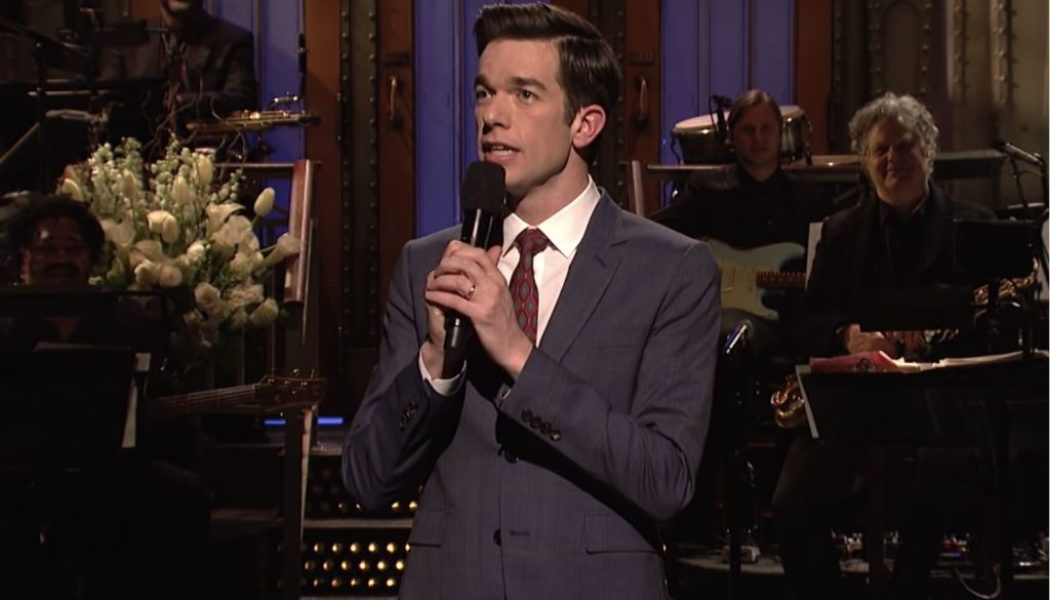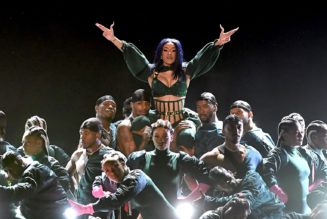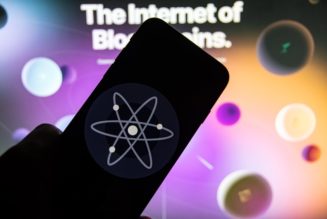
Spotify hosts a large offering of spoken word content on its platform these days, including comedy, podcasts, and poetry along with the music the platform has always been known for. Last week, however, on Nov. 24, the day before Thanksgiving, the streaming service quietly took down a broad swath of its spoken comedy recordings, including some of major comedy stars like Mike Birbiglia, John Mulaney and Jeff Foxworthy.
Sparking confusion and outrage among these affected comedians and their fans, as of Wednesday (Dec. 1), a full week later, the Spotify takedowns remain in place. So why did this happen in the first place?
Like music, there are two copyrights for a spoken-word comedy routine. First, the copyright for sound recording itself — for which many comedians collect royalties via SoundExchange — and second, its underlying literary work, like the jokes that you write down on the page. But until recently, no one had set up a collection society to earn any performing or mechanical royalties (known as “reproduction” royalties for spoken word) for the underlying literary copyright.
Enter, Spoken Giants and Word Collections. Like music performing rights organizations ASCAP and BMI, these companies organize performing rights licenses — and mechanical (“reproduction”) licenses, unlike music PROs — on behalf of their signed, spoken word talent. Spoken Giants was founded in 2019, after about a year of amassing a star studded membership of over 300 of the top comics and spreading awareness about their purpose. Word Collections was founded in July 2020 by TuneCore and Audiam founder Jeff Price. Last spring, Spoken Giants started sending introductory letters and term sheets to streaming platforms and digital and terrestrial radio, stating that they would now like to start negotiating for the rates of acquiring rights to spoken word content.
“This is something that has never been done before,” explains former BMI executive turned Spoken Giants CEO Jim King. “These rights have never been pursued.”
What sets Spoken Giants’ and Word Collections’ efforts apart form ASCAP and BMI, however, in terms of the rates for performing rights, is that they are not dogged by a government consent decree, which forces the music PROs negotiations with DSPs to be settled in court instead of directly between the two parties.
But still, King says the company is “modeling itself after the music industry.” “We don’t want any more or any less than what a songwriter or another type of creator might receive for their royalty. In that way, we are not trying to create something new.”
Spotify, however, according to King, did not want to negotiate, and within the last few months, Spotify mentioned the possibility of taking down content.
Although Spoken Giants negotiators tried to get Spotify to “talk first,” King says, “the next conversation we had, well, it wasn’t really a conversation… It was just an email at 5 o’clock on Thanksgiving Eve, saying they were taking it all down.”
When asked for comment, a Spotify spokesperson said, “Spotify has paid significant amounts of money for the content in question, and would love to continue to do so. However, given that Spoken Giants is disputing what rights various licensors have, it’s imperative that the labels that distribute this content, Spotify and Spoken Giants come together to resolve this issue to ensure this content remains available to fans around the globe.”
Though it remains unclear the full scope of comedians affected by the takedowns, it seems Spotify is focused Spoken Giants. Fans online, however, have speculated other comedians like Robin Williams and Kevin Hart (neither of which currently work with Spoken Giants) have been removed as well.
“Obviously I was pretty shocked that Spotify removed so much stand up comedy from its catalog… It’s really unfortunate for so many comics who build up their target audience off of people finding them on places like Spotify. They’re such a big chunk of the audio marketplace” says comedian Dan Cummins, who had content removed from Spotify.
“I agree with [Spoken Giants about Spotify],” says Price. “They might be a competitor, but we should all be fighting for the same common cause, which is, comedians have been f—ed by these streaming services. It’s not right, and it needs to stop.”
On Wednesday, at 9:15 p.m. EST, Spoken Giants sent the following letter to its membership regarding the ongoing situation with Spotify.
An update on Spotify’s takedown of material from Spoken Giants members and other comedians …
The reasons for Spotify’s decision are not clear and our legal and negotiations teams are working to re-engage with Spotify to establish proper licensing for your underlying literary rights. Spoken Giants has been working in good faith to negotiate a blanket license for your comedy composition rights. In the last couple days we have seen online a report that Spotify indicates they are currently working with us to resolve this situation. We wish this was true and are working to make this true!
Important points for you:
· Spoken Giants represents you, comedians, who should get paid for the comedy content you write, just like songwriters get paid for the songs they write.
· Spoken Giants wants your works that we represent to be available as widely as possible, across as many platforms as possible.
· As we’ve worked to establish fair, equitable licenses with Spotify, Spoken Giants has never requested that Spotify take down comedy content.
· Spotify unilaterally decided to take down content on the night before Thanksgiving, after business hours were over for the day and for the long holiday weekend.
· A broad spectrum of comedians and record labels are being negatively impacted by Spotify’s retaliatory response to our professionally worded, legally sound requests to discuss fair compensation.
· Spotify has not advised us on if, or when, they will restore comedy content on their service. Currently, so much great comedy is unavailable on Spotify because Spotify refuses to discuss paying you for what you write.
· Not only is Spotify trying to punish comedians represented by Spoken Giants for asserting their right to be paid for the content they write but it appears that Spotify is also taking down comedy written by comedians who aren’t affiliated with Spoken Giants.
Our goal is to represent you, the members of Spoken Giants, and to work in a cooperative method with the platforms delivering your comedy content. We have reached out to Spotify to rectify this as quickly as possible, keeping in mind your best interests. I will endeavor to provide regular updates on where things stand and welcome your feedback. Thank you so much for your patience and your continued belief in Spoken Giants.







![EDM.com Playlist Picks: Aluna, Alan Walker, Matroda & More [9/30/22]](https://www.wazupnaija.com/wp-content/uploads/2022/10/edm-com-playlist-picks-aluna-alan-walker-matroda-more-9-30-22-327x219.jpg)


